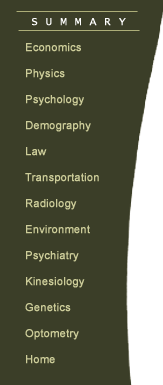|
Genetics
Sequencing of the human genome was announced too
hastily
Sequencing of
the human genome is far from complete, endocrinologist and biochemist
Jacques Lussier believes. "The announcement made in February
2001 was premature," states this professor in the Faculty of
Veterinary Medicine at Université de Montréal. "What
is known is not 85% of human genes, as announced, but less than
a third."
When he conducted
a study of bovine genes with his students, this researcher, who
specializes in animal reproduction, was surprised to find that 45%
of the sequences were missing from the Genbank database, where the
genome data were made public. "It is really incredible that
so few known sequences are present among a selection of genes chosen
at random," he stated.
For Professor Lussier, the economic interests of private enterprise,
in particular Celera Genomics, forced researchers to make a premature
public announcement. In his opinion, the complete sequencing of
the human genome will not be completed before 2003.
It will be
remembered that on June 26, 2000, a consortium made up of the United
States, Great Britain, France, Germany, Japan and China announced
the completion of preliminary sequencing of the human genome. It
was announced that "nearly the entire human genome," in
other words, the 3.1 billion base pairs of our genetic makeup, had
been decoded. In Washington, US President Bill Clinton called June
26 a "day for the ages." British Prime Minister Tony Blair
spoke of "the first great technological triumph of the 21st
century."
For the layman,
the objection that immediately comes to mind is that the gene of
an animal is not a human gene. Prof. Lussier dos not concur. To
deny a common genetic base is to deny the theory of evolution of
species. "A gene that codes for a given protein in drosophila
has a very similar sequence identity in humans," he explains.
Moreover, Jacques
Lussier is not the only one criticizing Celera for its impatience
and clever manoeuvres designed to draw media attention… and
attract investors. Jean Weissenbach, a French researcher working
on the human genome, has taken private enterprise to task in a recent
issue of Médecine/Sciences (March 17, 2001). He speaks of
"fallacious results" and "fraud." "There
are 170,000 'holes' in the Celera compartmented assembly, and the
structure of at least a third of these genes is incomplete,"
he writes.
Researcher :
Jacques Lussier
Phone : (514) 343-6111 ext. 8363
Funding : Natural Science and Engeneering Research Council of Canada,
Fonds pour la formation des chercheurs et l'aide à la recherche
(Québec), Ministère de l'Agriculture, des Pêcheries
et de l'Alimentation (Québec)
|
